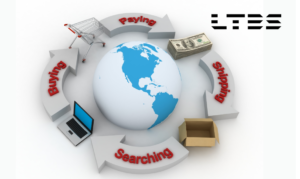How SEPA Direct Debit differs from UK Direct Debit

How SEPA Direct Debit differs from UK Direct Debit
For those businesses that trade in Europe you may already be aware of SEPA. If not, you soon will be as from 31st October 2016 all UK businesses that collect Euro-denominated payments, will have to migrate to the SEPA Direct Debit Scheme.
The Single Euro Payments Area (SEPA) is an EU initiative to simplify bank transfers across the Eurozone. With the aim to make cross-border cashless payments as seamless as domestic ones, the European Payments Council (EPC) has created three payment schemes.
- SEPA Direct Debit (SDD)
- SEPA Credit Transfer (SCT)
- SEPA Cards Framework (SCF)
As well as making cross-border transfers faster and more secure, there are other advantages for business, such as increasing efficiency, reducing barriers to market entry, and lowering transfer costs.
An integral part of SEPA is that all banks give a guarantee for the time it takes to execute transactions and that this will be standardised for each payment instrument, no matter which EU country it is coming from or going to.
Although some banks will have to make substantial investments to speed up their payment systems, or look to contract out their payment processing to more efficient providers, it is unlikely they will pass these costs on to merchants. SEPA aims to increase efficiency and reduce prices by making the euro area banking market more competitive, banking customers will be looking for the best deal from their bank.
If you are looking for more opportunities to do business in Europe, and take payments in euros, being compliant with a SEPA scheme could give you an advantage over your competitors.
In this post we are going to be looking at SEPA Direct Debit (SDD) and how this affects UK merchants.
The EPC launched SDD schemes in 2009 and created for the first time a payment instruction that could be used for domestic and cross-border transactions with SEPA member countries. Of course, the UK is not in the Eurozone, but the scheme runs here too. Allowing UK merchants to collect direct debit payments through SDD as well as UK Direct Debit.
Of course, UK domestic accounts are generally held in UK sterling and are therefore not covered by SEPA for national transactions (those within the UK). SEPA is only applicable for euro payments and so UK merchants cannot collect GBP payments through SDD.
However, from 31st October 2016 UK businesses collecting Euro-denominated payments (here and overseas) will be required to migrate to the SEPA Direct Debit Scheme. Therefore if you want to collect direct debits in euros, it’s time to find out more.
What are the main highlights of the SEPA Direct Debit Scheme?
Unlike UK Direct Debit the SDD differentiates between businesses and consumers and runs two different schemes:
- SEPA Core Direct Debit: for consumers (non businesses) wishing to pay a payee by direct debit.
- SEPA B2B Direct Debit: for B2B companies wishing to pay or collect payments by direct debit.
These two schemes differ, with SEPA Core perhaps being the easiest to migrate across. For example with Core SDD it is mandatory for all banks to participate in the scheme, whereas B2B SDD relies on your customers notifying their bank that payments will be taken in this way: it is not mandatory for banks to be enrolled in B2B SDD.
Other key points to consider with the two schemes are that B2B SDD gives payees no right to a refund, whereas Core SDD give debtors up to 13 months to get a refund; unlike here in the UK where there is no time limit on when a claim for a refund (indemnity claims) can be made by a customer with UK Direct Debit. You may also find that some countries have excluded micro businesses from using B2B SDD. The processes of setting up a mandate also vary, with the debtor being required to send a signed copy of the mandate to their bank to authorise B2B collections.
It should also be noted that under SDD businesses must hold the SEPA mandate (you do not submit the original to your bank). Instead direct debit mandate information must be sent electronically as part of each payment file along with a unique mandate reference (UMR).
We will be exploring setting up mandates and the process of applying to a bank for SDD payment in more detail in a future post.
In the meantime for more detail and the rules and regulations for each scheme, follow the links below to relevant the European Payments Council page:
UK merchants should also be aware that the bank details required for SDD transactions are not the same as a UK Direct Debit. Rather than the sort code and account number, you will require the customer’s Bank Identifier Code (BIC) and International Bank Account Numbers (IBAN). Payment processors will need to develop their systems to capture and process this information.
Mandates must also be in the language of the debtor, and these have been standardised across SEPA. Further guidance on the creation of SEPA mandates and translations of the mandate text are available on the European Payments Council website
Next steps…
So, if you are not yet set up for taking SEPA Direct Debit payments, what do you need to do? Fortunately UK businesses do not have to do much to become compliant.
Ahead of the deadline next year, get into the habit of collecting the BIC and IBAN of your customers and suppliers, so you have this information readily available. But note this is only relevant for transactions in euros, if you have direct debits set up for transferring sterling through UK Direct Debit, these payments will remain unaffected.
With SDD you will also need to submit using SEPA file standards (SEPA XML). Your accounts software provider should be able to provide you with compliant files, or you may require an internal systems upgrade.
You will also need a Creditor Identifier that can be used in all SEPA countries. Your bank usually gives this to you once you start using SDD; check with them that this is the case.
Finally you should also consider how the SEPA submission timelines might impact on your business, potential rejections and returns (these vary from UK Direct Debit), and also understand the SEPA regulations concerning communications with customers, and consumer rights.
As always speak to your bank, payments partner, or accountant for advice on this or any other type of payment to ensure that you are complying with current legislation




